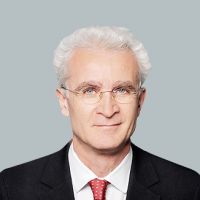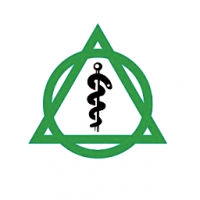Recommended specialists
Article overview
In which specialist field is an epilepsy specialist active?
The first point of contact for many who experience a seizure will be a primary care doctor, but if epilepsy is suspected, there will probably be a referral on to a neurologist, who specialises in a range of brain disorders. A number of neurologists who have had additional training in epilepsy, and perhaps work mainly within that specific field, are sometimes described as epileptologists.
In more complex cases, where the disease is harder to control or where there is a need for additional counselling in respect of pregnancy or childbirth, it may be necessary to consult with specialists from associated fields in connection with diagnosis, testing and treatment. These specialist disciplines may include:
- sleep specialists from pulmonary medicine
- neuroradiology
- neuropsychology
- psychiatry
- neurosurgery
- pathology
In addition, it is common for patients to be assigned a specialist epilepsy nurse. A specialist nurse can act as a link between the patient and other professionals, may also have a role to play in your treatment, and will certainly offer their support to help you manage your epilepsy.
Your primary care doctor may also be involved in the ongoing management of your epilepsy. They may handle practical tasks, such as prescribing drug treatments, and will be available to answer any questions or concerns that may arise about any aspect of your treatment.
Which illnesses does an epilepsy specialist treat?
An epilepsy specialist will treat patients with epilepsy, sometimes with the help of a multidisciplinary team. Rather than a single condition, epilepsy is a group of neurological disorders that characteristically produce epileptic seizures that are convulsive in nature. These episodes, which can vary considerably in intensity, may sometimes involve extended bouts of uncontrolled shaking. There is a likelihood that these symptoms, which can cause physical injuries and even broken bones, will recur.
What treatment methods are used by an epilepsy specialist?
Though it is generally believed that epilepsy cannot be cured, most epileptic conditions can be satisfactorily managed with medication. Where epileptic seizures cannot be successfully controlled via prescription drugs, surgery is then the recommended option.
Some common surgical interventions are as follows:
- The best outcomes have been achieved when it has been possible to identify and remove the portion of the brain where epilepsy has been detected.
- A further surgical strategy involves disconnecting certain neural pathways to stop a ‘chain reaction’, which would otherwise allow a seizure to spread to other areas of the brain.
- The vagus nerve stimulation technique implants a device that electronically stimulates the vagus nerve – the nerve that controls unconscious body procedures. This can often help to reduce seizures.
- An RNS (responsive neurostimulation) device uses a similar process. Surgically installed below the scalp, this neurostimulator device is electrically wired to the parts of the brain that have been identified as the source of epileptic seizures. If abnormal electrical activity is detected, the RNS device responds with targeted electrical pulses to normalise brain function by interrupting the seizure cycle before it gets under way.
Medication is used to manage most epilepsy by reducing the severity and frequency of symptoms, or even preventing them completely. This usually takes one of the following forms:
- a range of anti-seizure drugs
- anticonvulsant drugs (taken alone or in combination) to manage severe cases that are unresponsive to anti-seizure medication
Other treatment approaches include:
- stress reduction to minimise seizure activity, using yoga, biofeedback and relaxation therapies in combination with medication
- a ketogenic diet (high-fat, low protein and carbohydrates), which has been found to reduce seizures in children, with some remaining seizure-free after the treatment finishes
Those who are at risk of epileptic seizures are usually encouraged to wear some form of ‘MedicAlert’ bracelet. This will help those offering first-response medical assistance to quickly recognise that an epileptic episode is taking place and respond with appropriate emergency treatments.
What additional qualifications are required by an epilepsy specialist?
An epilepsy specialist will have initially trained in the medical discipline of neurology. However, since 2010, the ABPN (the American Board of Psychiatry and Neurology) has offered a new subspecialty certification relating to epilepsy. This means that epilepsy is now defined as a medical sub-category of neurology and child neurology. In addition, this qualification gives epilepsy specialists important official recognition of their training and experience in the treatment of epilepsy.
To become eligible for this accreditation, suitably qualified neurology candidates (or neurology with a special qualification in child neurology) are required to complete a two-year fellowship in epilepsy. To achieve certification, they must also provide evidence of the required level of epilepsy-focused practice experience, or alternatively, documented proof that they have successfully met the demands of a formal period of epilepsy-based training.












